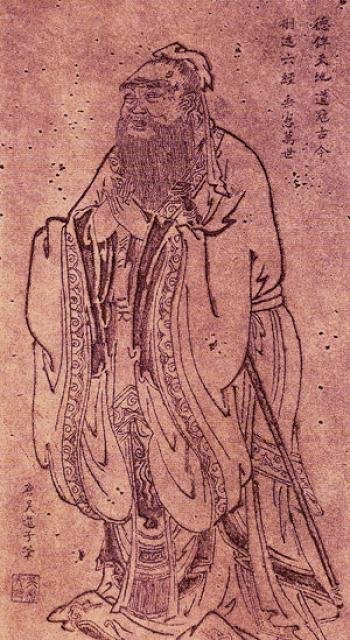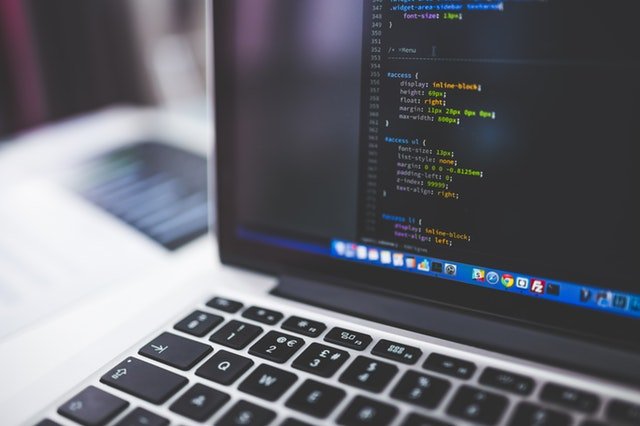Knowledge is power, but is all knowledge created equal? Which type of knowledge is the most powerful? Knowledge of self presents itself as a good candidate, being applicable to every situation. But what is knowledge really? Knowledge of knowledge has an even broader scope, and is the subject of this introductory post.
In the English language, beautiful amalgam that it is, definitions are particularly difficult to pin down. Most words have more than one meaning, some take up pages of the dictionary. While this allows for a wide range of poetic expression, it clouds communication and the thought behind it. In this series, I attempt to bring clarity to the ideas behind ambiguous words.

"The beginning of wisdom is to call things by their proper name."
Confucius, The Analects ~ 500 B.C. {{PD-1923}}
Knowledge vs Information
These two words represent two distinct aspects of the mind. There is some overlap in their definitions, leaving the separate meaning of each obscured. It is my goal here to untangle the concepts behind these words.
Information is basically any sensory input or ideas received by a mind. Everything you see, hear, or feel informs you about the world around you, yourself, or the relation between the two. Information is infinitely reproducible and can be transmitted to passive recipients. For example, video recorded in one place can be broadcast across the world on television. Information can be true or untrue, or anywhere in between. (We will examine the spectrum of truth in greater detail at a later date.)
Reproduction of knowledge, on the other hand, requires active participation by the recipient. A teacher can attempt to transmit knowledge, but the student must actually try to learn how to read or ride a bike. Before a student can really try, they must have desire for the knowledge in the first place. Active intention is a critical component of learning.
Using the analogy of a computer, information is like data. It exists in a variety of formats, like text or video. Knowledge is like a program or application. Programs consist of data themselves, but they are a special kind of data: data on how to use other data. In the same way, knowledge is made up of information - but it is a special type of information: information on how to use other information. A video player program allows a computer to interpret a specific kind of data (ones and zeros in a video format) and recreate a moving image. Simillarly, knowledge of how to read english allows a person to interpret a specific type of information (english letters and words) and recreate an image or idea in the mind.
Is acquiring information the same thing as gaining knowledge?

I'll leave off there for now. Maybe next week we'll discuss definitions of intelligence and wisdom and how they fit in to this picture.
The definitions and opinions put forth in this post are informal and meant to be food for thought. I make no claim to authority of any kind, other than being a general lover of words. There are many types of knowledge, in this post I have attempted to speak of the category generally. If you wish to discuss other meanings of these words with me feel free to post in the comments, and if you want to delve deeper on your own and don't know where to start, try googling epistemology.
Congratulations @tehol! You have completed some achievement on Steemit and have been rewarded with new badge(s) :
Click on any badge to view your own Board of Honor on SteemitBoard.
For more information about SteemitBoard, click here
If you no longer want to receive notifications, reply to this comment with the word
STOPThank you for a great introductory article. I plan to cover some aspects of this subject during my MINI-COURSE IN CLAIRVOYANCE - Associative Remote Viewing, where it is quite important to understand what the remote viewers actually convey during a clairvoyance session. Obviously, it is information, not knowledge because they simply describe their visual, auditory, gustatory, olfactory and kinaesthetic perceptions. I will be glad to refer to your articles in the following parts of the course, because, only too often, people ask clairvoyants for advice, counselling, knowledge, wisdom which is something that clairvoyants are hardly qualified to offer. On the other hand, ambiguity in the English language works greatly in ericksonian hypnosis and Neuro-Linguistic Programming. We thrive on semantic ambiguities when working with clients. Best wishes!
I am so happy that you found it useful! How interesting, the distinction that clairvoyants target information rather than knowledge. It certainly makes sense. I know nothing about the subject, or NLP, your course seems the perfect place for me to see what it's all about.
Having first found you on twitter, I always found your tweets intriguing. I was surprised yet delighted that you took the time to read my piece and retweet it! So thank you, the positive response helps strengthen my resolve to continue the series.
Congratulations @tehol! You received a personal award!
Happy Birthday! - You are on the Steem blockchain for 1 year!
Click here to view your Board
Congratulations @tehol! You received a personal award!
You can view your badges on your Steem Board and compare to others on the Steem Ranking
Vote for @Steemitboard as a witness to get one more award and increased upvotes!